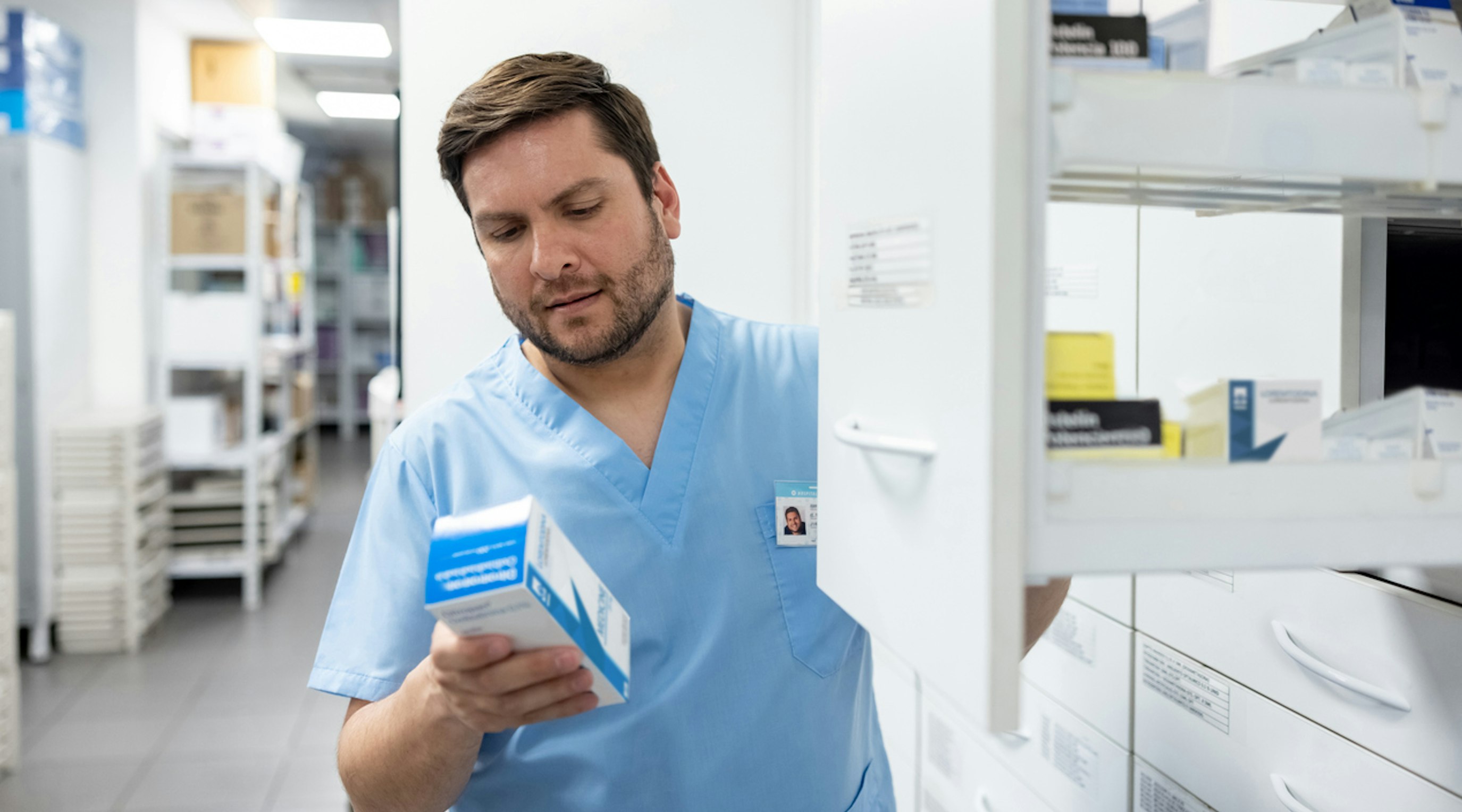When to consider alternatives: 57% of generic medicines in the UK in short supply
6 min read
Sarah Sinclair
While most people look for alternative treatment options because conventional medicines haven’t met their needs, an increase in prescription drug shortages in the UK is leaving more patients without access to effective medications.
We explore the impact of this and when it might be appropriate to consider alternative or complementary medicine, such as medical cannabis.
Contents
Is there a shortage of medication in the UK?
Over the last year, Releaf has heard from a growing number of patients who have had difficulty accessing medications which have effectively managed their symptoms in the past, due to issues with availability.
A report conducted by the British Generic Manufacturers Association (BGMA) in October highlighted that 57% of generic medicines have been in short supply for the last six months. A separate BGMA poll found 49% of UK adults experienced shortages or delays when trying to access their medication.
These shortages span a wide range of conditions, including medications for ADHD and menopause symptom management.
Why is there a shortage of prescription drugs?
The supply and manufacturer of medications are highly regulated and complex processes. As a result, medication shortages are usually caused by a number of factors.
According to the Community Pharmacy England website, shortages have been a growing problem, with events such as Brexit, COVID-19, the war in Ukraine, and wider economic instability causing disruption to supply chains. Some of the main causes may include:
- Shortages of raw materials, or supply disruption
- Issues with industry capacity and flexibility
- Discontinuation of medicines
- Recalls and product quality issues
- Unanticipated increased demand for medicines
- Changing prescribing patterns in response to changing guidance
- Distribution and logistical problems
- International trade barriers
What medications are in shortage right now?
A number of different prescription drugs are reported as being in short supply at the moment, although the situation is constantly evolving.
The Department of Health and Social Care (DHSC) and NHS England have launched a Medicines Supply Tool to provide up to date information about medicine supply issues. However, if you are a patient concerned about the availability of your medication, you should speak to your GP or local pharmacy.
Why is there an ADHD medication shortage?
Shortages of medications commonly prescribed for ADHD have been widely reported in recent years. This is thought to be due to a combination of manufacturing issues and increased demand, with more people being diagnosed with ADHD in the UK and globally.
Why is there a shortage of HRT medication?
Hormone Replacement Therapy (HRT) is used as a treatment for menopause and works by replacing the hormones oestrogen and progesterone in the body. Shortages of HRT have been reported since 2018.
A change in guidance from the National Institute of Health and Care Excellence (NICE) reiterated the safety of HRT and is believed to have resulted in increased prescribing. This, combined with a greater awareness of HRT among the general public, changes to prescription costs and wholesale supply issues has likely contributed to the ongoing shortages.
Impact of medication shortages on patients
Not being able to access the medications they need can have a significant impact on a patient's health and wellbeing, leaving patients with untreated symptoms which can have a detrimental impact on quality of life.
Suddenly stopping taking medication can also be very dangerous. Some patients have found themselves experiencing withdrawal symptoms such as vomiting and nausea, severe pain, and weight or appetite loss.
Earlier this year, a survey by the charity ADHD UK found that medicine shortages were having a negative impact on patient’s work, education, and relationships. The British Menopause Society and other medical bodies have also highlighted the ‘profound impact’ of supply disruption on women’s health and quality of life.
Medical cannabis: an alternative option
What is alternative medicine?
According to the NHS, Complementary and alternative medicine (CAM) is defined as treatment that falls ‘outside of mainstream healthcare’. This includes anything from acupuncture and homeopathy, to aromatherapy, meditation and colonic irrigation.
Medical cannabis is legal on prescription in the UK and has been since 2018. Many patients find cannabis-based medicinal products (CBMPs) to be a helpful complementary or alternative treatment for a range of chronic conditions.
Why patients use alternative medicine
Most patients turn to complementary or alternative medicine because their symptoms are not being effectively managed by conventional treatments or medications.
In this instance, for patients who are repeatedly experiencing issues in accessing their usual medications, it may be appropriate to explore alternative options.
Which conditions qualify for medical cannabis?
Medical cannabis is currently prescribed for a wide range of conditions, including ADHD, anxiety, sleep disorders and chronic pain. Many women also find it helpful for managing other symptoms commonly experienced during menopause.
Where can I get medical cannabis?
Medical cannabis can only be prescribed by doctors on the specialist register, through private clinics, such as Releaf. Releaf has worked hard to ensure patients always have access to a varied formula and a reliable and consistent supply of CBMPs, through partnerships with producers such as Glass Pharms and SOMAI pharmaceuticals.
How can I get medical cannabis: next steps
If you are repeatedly experiencing difficulties in accessing your usual medications, your first port of call should be to speak to your GP or pharmacist. If you feel it might be appropriate to look for alternatives in the meantime, the Releaf team can help you explore your options.
You can use the free eligibility checker here to sign up for an initial consultation with its team of specialist doctors who will help guide you through the next steps. If you still have questions, visit our FAQs page or contact the patient support team to discuss your needs.
Share article
Did you like this article?
It is important to seek medical advice before starting any new treatments. The patient advisors at Releaf are available to provide expert advice and support. Alternatively, click here to book a consultation with one of our specialist doctors.
Elevate your wellness with medical cannabis
Get comprehensive care, convenience, and confidence with an all-in-one treatment plan.
Am I eligible?Authors
Sarah, a distinguished journalist with over a decade in publishing and communications, now excels in cannabis health and policy journalism in the UK, advocating for informed health decisions through her award-winning work.
Editorial Policy
All of our articles are written by medical cannabis experts, guided by strict sourcing guidelines, and reference peer-reviewed studies and credible academic research. Our expert clinical team and compliance specialists provide valuable insights to ensure accuracy when required. Learn more in our editorial policy.
Need more help?










